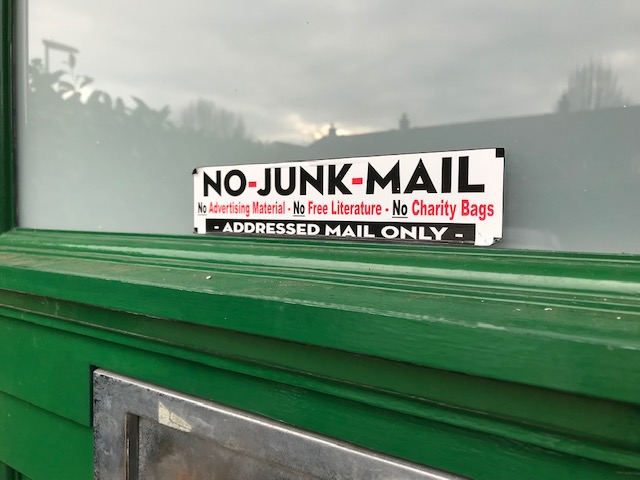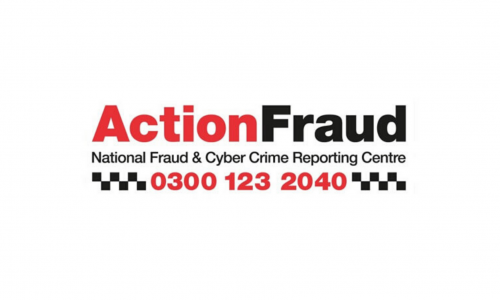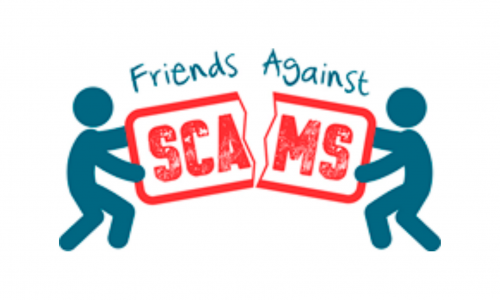Fraud and ‘scams’
Every year thousands of us fall victim to scams sent by post, email, text, the phone and internet. Carers, stressed, under pressure and often time-poor, can be especially prone to scams.
Carers and the elderly can be particularly vulnerable, victims of scams such as bogus lotteries, deceptive prize draws and sweepstakes, ‘guaranteed’ investments, fake psychics and ‘miracle’ health cures. And scams are getting increasingly sophisticated, for example, calls asking to log into your computer to ‘fix’ something, or calls supposedly from your bank or the police.
Research by the Office of Fair Trading (OFT) shows that older victims are likely to lose nearly twice as much per scam as others. Victims are often socially isolated, over-trusting or have illnesses such as dementia and can be repeatedly targeted by the scammers. One carer reported being bombarded by unwanted phone calls for over a year, demanding payments for products she had not ordered.
Huge growth
Which revealed that in the first half of 2021, losses to bank transfer scams overtook card fraud for the first time, with more than £355m lost to bank transfer scams in that period.
Their research showed four main types of bank transfer fraud, all on the rise: impersonation scams, investment scams, romance scams and, the largest area, purchase scams – paying for goods or services that are never received.
Types of scams
There are many types of scams to look out for. Some typical ones include:
Scam messages
Fraudsters contact you by email or text. They may pretend to be your bank or another company to try get your personal details. Look out for: messages out the blue, spelling mistakes, a sense of urgency/drama, the seeking of personal information, and crucially, you being asked to move money.
Purchase scams
It’s important to be very careful when you make an online payment for something. Follow your bank’s online warning system, check that the company or service is genuine; don’t rely on a contact from them saying they are genuine, do your own research.
Scam calls
You may get a call from fraudsters pretending to be your bank, the police or other well known organisations. It might sound real, but stop and think.
Is the call out the blue? Are they putting the pressure on? Are they telling you you need to transfer money? Are they saying this is a ‘test transaction’? Are they asking you to log on to your computer? All these are warning signs. Do not comply. Hang up. Or tell them you’ll call back. Redial using a number you know/trust (not the number they’ve given you).
Online shopping scams
Watch out for fake websites. Clues are: spelling mistakes, how the site looks, deals that are just too amazing, strange ways of paying, pressure to ‘buy now’.
Investment scams
These are growing in Surrey, and are common on ‘investments’ in gems, metals, wine, land (abroad), crypto-currencies and energy. Watch out for unexpected calls, deals that are ‘too good’ and certainly anything that puts you under pressure. They may know a lot about you – that should raise flags. If they say it’s a ‘secret’, it’s probably a scam. Always take your time, think, get advice, and importantly check they are genuine. The Financial Conduct Authority website will say if a company is licensed for investments. (The site also has hepful advice on spotting scams.)
Romance scams
Another growing area, sadly. To protect yourself, NEVER send money, or share your bank details, or offer to help move money.
How to protect yourself
Trusted advice
Which have excellent guidance on spotting scams, and what to do.
Age UK has excellent advice and guidance.
The ‘friends against scams’ website also has some online resources, including an 8 minute video on scam prevention.
In general, follow these principles
Online
- Don’t click on links and attachments in suspicious emails
- Check website links for strange typos, added numbers or things that don’t look right
- Think about how things have been shared, social media posts and WhatsApp chains can be written and doctored by anyone
- Remember that most major credit card providers insure online purchases so it can be a good idea to use one when shopping online
On the phone
- Ask your telecoms provider to help with call screening, or blocking. You can also go on the Telephone Preference Service to register not to receive unsolicited sales and marketing calls, although it may not stop overseas calls. Call 0345 070 0707.
At the door
- If someone claims to be from a charity, ask for ID
Generally
- Stop, think, and be sceptical. Did the communication (the call, letter or email) come out of the blue?
- NEVER give personal or financial information or PIN numbers to anyone, however plausible they might sound. This applies even if they claim to represent a business or organisation you have heard of or where the caller has your name. Genuine businesses or organisations will never telephone you and ask you for personal or financial information.
- Think about how much money you could lose responding to a potential scam; it’s a risk not worth taking.
- If you receive a call, letter or email that you suspect is bogus, speak to family or friends or seek advice from the Citizens Advice consumer service. To report a fraud call Action Fraud on 0300 123 2040.
- Never respond to unsolicited calls or messages that ask for personal details
- Don’t be rushed into making a purchase decision – it’s okay to refuse or ignore requests. If you’re not sure, ask a friend or family member for advice before buying.
In all cases, if it looks or sounds too good to be true, it probably is.
Surrey Trading Standards
Surrey Trading Standards can help. They can supply leaflets and sticker packs to protect carers from unwanted visitors and advise on phone blocking services to stop nuisance calls. For more information call 03454 04 05 06.
They also have very useful information on their website Surrey Trading Standards to help you look out for the various types of scams.



